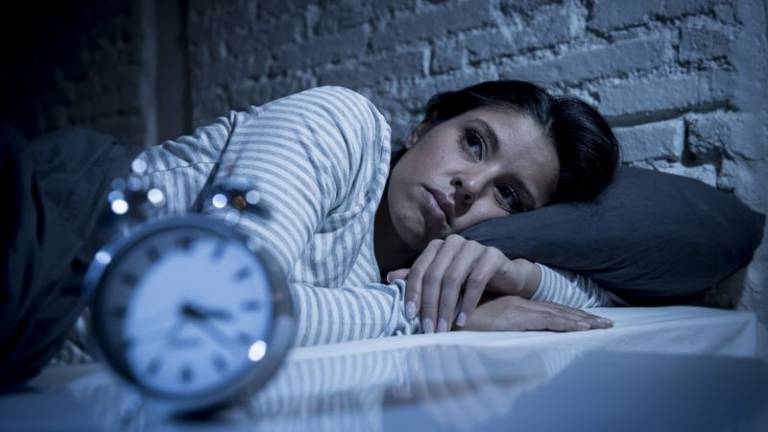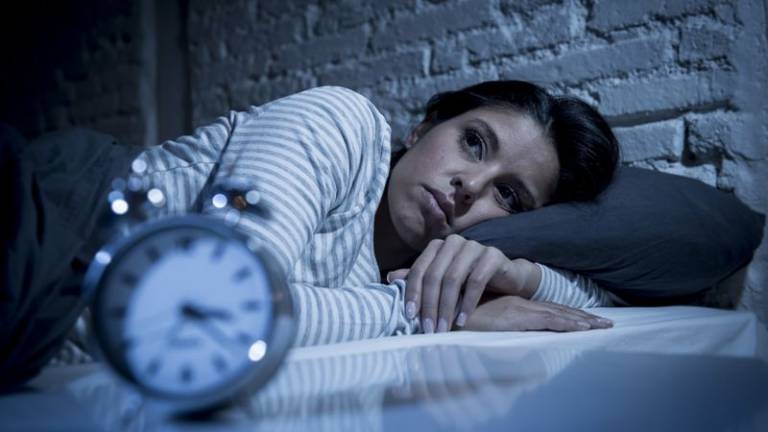Learn about brain health and nootropics to boost brain function
Sleep deprivation: Is the modern world the cause or could evolution have something to do with it?


SOME people fall asleep the moment their head touches the pillow. Others drift to sleep after a bout of tossing and turning. For an increasing number of us, sleep only arrives after hours of intense wakefulness. If not, we wake up suddenly, after only a few hours of shut eye and struggle to return to sleep.
Sleep deprivation is a growing concern in the modern world with many reporting to find it difficult to fall and stay asleep for a solid stretch. The problem may last just a day or two (acute sleep deprivation) for some, while is a routine for others (chronic sleep deprivation).
According to World Sleep Society, sleep deprivation is a global epidemic that threatens the health and quality of life of up to 45% of the world population. In Malaysia, a staggering nine out of 10 people report having trouble sleeping reveals a Nielsen study. But, why?
One reason we can all relate to is stress. When we are stressed about something, getting a good night’s rest is certainly a challenge. Still, these kinds of stress are not regular or long-term and likely to only cause acute or short-term loss of sleep.
Long-term sleep deprivation may be more complicated, depending on the reason. Chronic sleep problem can be due to depression, chronic stress, pain/discomfort due to serious illness or a sleep disorder, which interrupts the sleep cycle. But it can also stem from behaviours that develop sleep problems like sleeping in (more than required), napping or pondering in bed, which makes it difficult to fall asleep. Another reason is that we are ill-informed about how much sleep we actually need and don’t realise that we are seriously lacking sleep.
Do you have chronic sleep deprivation? (You could and not know it?)
According to sleep experts, the average adult needs seven to nine hours of sleep daily. Anything short of this for long periods of time is classified as chronic sleep deprivation, which affects our optimal functioning.
If you are used to getting four to five hours of sleep a day and feel absolutely fine, it is possibly because you can’t accurately tell anymore that you are lacking sleep.
Based on a study done by Harvard Medical School and University of Pennsylvania, over time (of not getting enough sleep), people who are sleep deprived fail to gauge reliably how sleepy they have become. The study showed four and six-hour sleepers’ self-rated sleepiness were leveling off. But, their performance (memory, cognitive abilities and reaction time) continued to decline.
Evolution’s role
According to sleep medicine research, humans are already short sleepers as it is compared to other primates, averaging seven hours (even though statistical models predict that humans should sleep 10.3 hours). This is, in a way to our disadvantage because we need at least seven hours (minimum) of high quality sleep. “We are short sleepers but we have the highest proportion of REM (the stage of sleep that goes even deeper into brain recovery, dreaming, and processing memories and emotions) of any primate. So we’re deep sleepers, we have high quality sleep and we rely on it for good cognitive function, immune function and memory consolidation,” shared University of Toronto assistant professor of biological anthropology and sleep expert, Dr David Samson, at the recent sleep health showcase co-hosted by AmLife and World Sleep Society.
Samson says evolution has made us short sleepers and as a result, vulnerable to diseases like Alzheimer’s and possibly other brain diseases. “There is an evolutionary reason why we have insomnia. Imagine sleeping exposed to the environment in the African savannah and hearing a lion roar. If you were going to survive and reproduce, you will need to be vigilant at night. So, in our evolutionary history, our sleep has probably been disruptive.”
This evolutionary tendency though, is providing us little time to clear out the toxins from our brain, a process that takes place when we sleep. “Humans have had evolution reduce total sleep time and we don’t have as much time as other primates to clear out our glmphatic system. So, there are more toxins in our brain, which leads to Alzheimer’s. Therefore, it might be that evolution created a vulnerability, a mismatch scenario in our brains and body that leaves us vulnerable to certain diseases.” Long term sleep deprivation is also known to increase the risk of health conditions like high blood pressure, heart attack, obesity and diabetes.
Modern world effects
Certainly, the modern world is also a significant contributing factor to our sleep problem. With 2/3 of the world living in a light pollution status area and the increase use of digital devices, bombarding us with blue light, our melatonin production is inhibited at night. “All this light is good in the day but at night, it confuses our mechanism because at night, we need melatonin, which is the principle hormone that regulates our sleep-wake activities, that makes us sleepy at night. It is also a critical antioxidant that helps clear our toxins. So, when you’re looking at your phones, you’re actually inhibiting melatonin,” says Samson.
The difference between us in the industrial world and such traditional populations like the hunter-gatherers in East Africa, the Hadza, is that they have stronger circadian rhythms than us. “They sleep less than us (around 6.25 hours) but their circadian rhythm is far more stronger,” Samson revealed. When our circadian rhythm is strong, the body’s biological clock is in sync with nature, and as sunlight decreases at the end of the day, the body produces melatonin and facilitates sleep.
Practising good sleep hygiene
The fact that there are many factors that affects our sleep from evolution to the modern world, it is essentially in our hands to ensure that we get good quality sleep. In order to encourage good quality sleep, it is important to prep our environment and ourselves to foster highest quality and deep sleep. This includes:
1. Refraining from screens at least an hour before bedtime.
2. Doing something relaxing instead of something that would trigger an emotional response, which will fire up your amygdala and produce cortisol.
3. Getting good sunlight first thing in the morning for about 30 minutes because after 16 hours, it will put you naturally into a sleep state.
4. Keeping out any light from your sleep environment.
5. Seeking help for depression, chronic stress or sleep disorders.
There is good news about our sleep says Samson. “There is ongoing debate in the West, whether or not sleep is improving in duration and quality with the disruption of technology certainly having an effect. In the UK for example, they have comprehensive sleep diaries since 1974, that show that there is a 43-minute increase, which could be due to the safety and security of our environment and improvement in bedding technology that reduces sleep fragmentation. Now, if we can couple that with the lessons we learn from the Hadza, focus on getting good light hygiene, that is good natural light in the day, but stay away from it at night when the sun goes down, then you might also not just get good quality sleep but augment and strengthen your circadian rhythm.”
Info retrieved from online sources and a talk on sleep education and solutions.
Click here to view full article